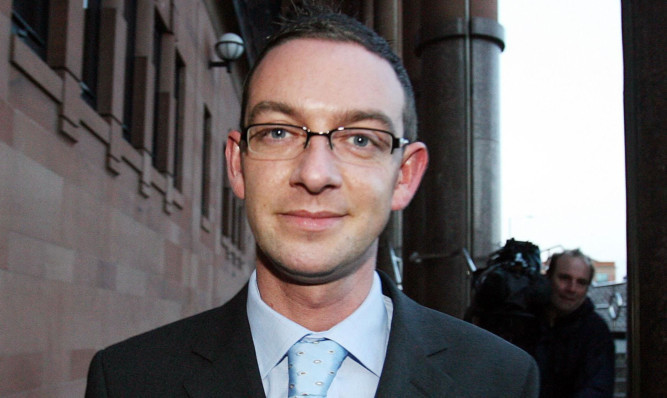New scientific evidence casts fresh doubt on the conviction of a Ninewells Hospital-trained nurse jailed for murdering four elderly women and attempting to kill another, according a TV investigation.
Glasgow-born Colin Norris was jailed for life in March 2008, when he was 32, after he was found guilty of murdering the women while working in Leeds General Infirmary and the city’s St James’s Hospital in 2002.
A doctor raised the alarm after noticing that one of the patients had suddenly and unexpectedly slipped into a hypoglycaemic coma from which she later died.
A jury at Newcastle Crown Court was told that Ethel Hall, 86, who was not diabetic, had been injected with a massive and fatal dose of insulin, which reduced the sugar content in her blood to a level where her brain became starved of the glucose it needed to function properly.
Tests showed insulin levels 12 times the norm, the court heard.
Norris has always protested his innocence and denied injecting patients with insulin. His case had been the focus of campaigners who fear a miscarriage of justice and is currently under review by the Criminal Cases Review Commission.
Earlier this year, local band The Cundeez defended their decision to take part in a fundraising concert for Norris.
A BBC Scotland investigation has now raised the possibility that all of Norris’s victims could have died from natural causes.
In a programme to be screened tonight BBC Scotland Investigates: The Innocent Serial Killer? Professor Terry Wilkin, an endocrinologist specialising in diabetes at Exeter University, questions the blood test on Ethel Hall.
Prof Wilkin suggests just over a litre of insulin would have been required to give the result used in court – a test result which was presented as proof of deliberate poisoning.
In the documentary, another expert, Dr Adel Ismail, a retired clinical biochemist, says another explanation for the blood result could be a rare condition called insulin auto immune syndrome (IAS).
The programme makers put the evidence they gathered to one of the jurors from Norris’s trial at Newcastle Crown Court.
The juror tells the show: “If the new evidence was available at the time, I think they would have thrown the case out.”
West Yorkshire Police said: “Norris was arrested, prosecuted and, on the basis of the evidence presented to the court, he was convicted and sentenced.
“His conviction was upheld at the Court of Appeal in December 2009.
“The case is currently under review by the Criminal Cases Review Commission (CCRC) and we will consider their findings when they are presented to us.’
The BBC said it is making its evidence available to the CCRC.
Norris, who was dubbed the ‘Angel of Death’, began studying nursing in Dundee in 1998. His training led him to work there and at the city’s Royal Victoria Hospital. He also had placements at the Riverside Nursing Home and Broughty Ferry Health Centre.
He graduated from Dundee in 2001.
